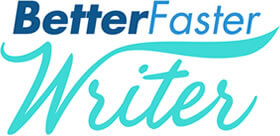Have you seen the meme about how the first 40 years of parenting are the hardest? Not to throw my kids under the bus, but it has stopped being funny lately. Both kids are in their 20s and both seem hellbent on being self-employed. As their mother, who has spent most of the past 30 years self-employed, this makes me nervous. I envied friends with steady incomes, retirement plans, sick leave and paid vacation. I had hoped my kids would have all the bennies I went without.
But my kids are on the right path…and I am wrong. Why? Because the very nature of work is changing. Jobs as we know it are going away, and all my kids are doing is gearing up for that future.
Warning: With this seismic shift, you too could find yourself a self-employed freelance or gig worker in the near future.
The nature of work was changing long before COVID.
 This huge change isn’t due to the pandemic, although that is probably accelerating it. Nope, this change has been coming for a while. Six years ago, an article appeared in TechCrunch titled In the Future, Employees Won’t Exist. The author pointed out back then that not only do businesses like Uber have business models built on contractors, but giant companies like Microsoft also rely on huge numbers of contractors working alongside their regular full-time employees.
This huge change isn’t due to the pandemic, although that is probably accelerating it. Nope, this change has been coming for a while. Six years ago, an article appeared in TechCrunch titled In the Future, Employees Won’t Exist. The author pointed out back then that not only do businesses like Uber have business models built on contractors, but giant companies like Microsoft also rely on huge numbers of contractors working alongside their regular full-time employees.
Yep. Contract work was already normal prior to the COVID disruption. It goes by many names—the 1099 economy, the freelance economy, the gig economy—but whatever you call it, it means we already had 53 million people working as freelancers in the U.S. in 2014. By 2020, that number had reached 59 million.
As with Microsoft, part of this is due to corporations choosing contract workers over traditional employees. But part of this is due to choice. Millennials make up the majority of the U.S workforce, and they tend to value autonomy over salary. That means they want to work remotely with flexible schedules rather than give up freedom in exchange for pay and benefits.
When both corporations and workers prefer the non-traditional model, it’s clear that work as we know it is going away and there’s a good chance you’ll someday work as a contractor or freelancer—or perhaps start your own business.
“OK, that’s in the future,” you’re thinking. “Why does that matter today?”
Because today is the day you should start getting ready for this big shift. It’s easy to assume your own world won’t change, but millions of people have recently learned a job can disappear in an instant. And you know the saying “Forewarned is forearmed?” Well, now is the time to heed my warning and get armed.
Below you’ll find four areas of your life that will need work before you go it alone: money management, self discipline, personal branding, and writing skills. For each, you’ll find tips for improving along with some of my own life lessons over the past 3 decades. Ready? Let’s dive in!
One: Learn to Manage Your Money
 When you’re in charge of your own pay and benefits, you have a lot more to think about and take care of compared to being a traditional employee. Not only will you forgo vacation pay to cover those much-needed days off: You won’t have sick leave either. Plus your health, dental and vision insurance will be your own responsibility as well as your retirement.
When you’re in charge of your own pay and benefits, you have a lot more to think about and take care of compared to being a traditional employee. Not only will you forgo vacation pay to cover those much-needed days off: You won’t have sick leave either. Plus your health, dental and vision insurance will be your own responsibility as well as your retirement.
That’s a lot to take on and we won’t here because I’m a writer, not a financial guru. But I will say: Learn to manage your money before you no longer have the cushion of a steady paycheck and benefits. You’ll be in a much better position later if you tackle that now.
You’ll find useful personal finance tips for freelancers and gig workers here (but ignore the blatant credit card sales pitch at the end).
Personally, I’m a huge fan of Financial Peace University. My husband and I took the course in 2016 and it changed our money management forever.
Even if you keep a traditional job for the rest of your working life, you’ll benefit from the lessons learned when you learn to manage your money now.
Two: Learn Self-Discipline
I’ve been self-employed in one way or another for almost 30 years. During that time, I’ve had the luxury of an entire cottage turned into an office right outside my back door and I’ve been stuck at a kitchen counter in a busy hallway with my chair getting bumped as family members walked by. I’ve had an entire spare bedroom to make into my workspace and I have what I have now: a crowded space at the top of the stairs in a tiny old farmhouse.
Despite all my different working situations, however, one thing has remained constant: the need for self discipline. Without self discipline, it’s almost impossible to succeed on your own, with no clock to punch or manager to report to.
As with money management, the time to learn is now and you’ll benefit even if you stay a traditional employee your whole career.
For tips, you can find helpful advice in this article on self discipline for freelancers, and below are the tips that I find most useful for maintaining self discipline. My suggestion? Start putting them to use now even if you have a “real” job:
Have a schedule.
- You can’t start work after you take care of other tasks like the dishes and walking the dog. You have to start work at a scheduled time or you might not get started at all.
- Then stick to your schedule! Don’t keep working because you might as well since you’re already at your desk.
- The point of your schedule is no overtime, but no undertime either.
- Schedule breaks into your day. (I admit: This is the hardest part for me. I schedule them but I don’t take them.)
- Take a lunch break away from your work area. (Again, this is one I struggle with, so I am speaking from experience here when I suggest you do it.)
- Try time blocking. It is a proven way to structure your day to increase your productivity without increasing your stress.
 Have a workspace.
Have a workspace.
- Having a designated workspace helps your brain to switch gears to work mode at the start of your day, but also to turn it off at the end of the day when you “leave” your workspace. Even if it’s your kitchen table, it can be that workspace.
- Do try to make it a pleasant area, with whatever that means for you: plants, flowers, candles, photos of family, your favorite cat calendar, a souvenir, a bookshelf, art….
- Also try to keep it clean and uncluttered. (Uh, yeah. Do as I say, not as I do.)
Stay focused on work while working.
- Avoid multi tasking and distractions. Put your phone away in another room and turn off notifications on your computer. (Get more strategies by learning how your smartphone dumbs down your work).
Three: Build Your Brand
In a future without jobs, personal brand will be paramount, whether you’re a business owner, freelancer or contractor. And building a brand will take ongoing effort. Look at this list of activities Caroline Ceniza-Levine describes in her article How to Build a Successful Career in a Future Without Jobs:
“…today’s professional will need to know marketing and branding. You can’t just hire a resume writer, even a good one, and think you’ll be competitive. You need an online presence—a LinkedIn profile at minimum and typically multiple social media platforms and ideally your own website. You need to establish thought leadership by getting published, appearing in media, and / or speaking at conferences.”
The time to start building that brand is now…before you need it.
Four: Improve Your Writing Skills
 But hang on. Take another look at the list above. Notice how many of the brand building tasks require writing: your online profiles, website, getting published…even writing speeches.
But hang on. Take another look at the list above. Notice how many of the brand building tasks require writing: your online profiles, website, getting published…even writing speeches.
The lesson? Your writing skills are part of your brand.
But you also need to improve your writing skills because they will matter much more in a freelance world. Here are three reasons why:
- When you work remotely, writing carries a heavier burden when it takes the place of in-person communication. You don’t have the body language, voice inflection and facial expressions that normally help you communicate. As an example of how unclear writing can be on its own, see how this seven-word sentence can have six different meanings depending on the word you emphasize.
- Working remotely as a freelancer or contractor also means relying more on messaging and email to communicate with others—requiring strong writing skills.
- You might be writing to apply for gigs, submitting proposals, responding to Upwork listings or filling out online applications. In those cases, your writing skills could determine whether or not you get that gig.
In today’s world of work, as I’ve written elsewhere about business writing skills, “Your writing is your everything.”
 It’s definitely time to brace yourself
It’s definitely time to brace yourself
You probably know the “Brace yourself” meme, as it’s popular. Take a minute and think about what it will mean if your traditional employment goes away. What will your “brace yourself” statement be? “The future is freelance” perhaps? Or maybe “The 1099s are coming.”
Whatever it is, brace yourself. Position yourself today for the future of freelance tomorrow.


 Have a workspace.
Have a workspace. “…today’s professional will need to know marketing and branding. You can’t just hire a resume writer, even a good one, and think you’ll be competitive. You need an online presence—a LinkedIn profile at minimum and typically multiple social media platforms and ideally your own website. You need to establish thought leadership by getting published, appearing in media, and / or speaking at conferences.”
“…today’s professional will need to know marketing and branding. You can’t just hire a resume writer, even a good one, and think you’ll be competitive. You need an online presence—a LinkedIn profile at minimum and typically multiple social media platforms and ideally your own website. You need to establish thought leadership by getting published, appearing in media, and / or speaking at conferences.” It’s definitely time to brace yourself
It’s definitely time to brace yourself